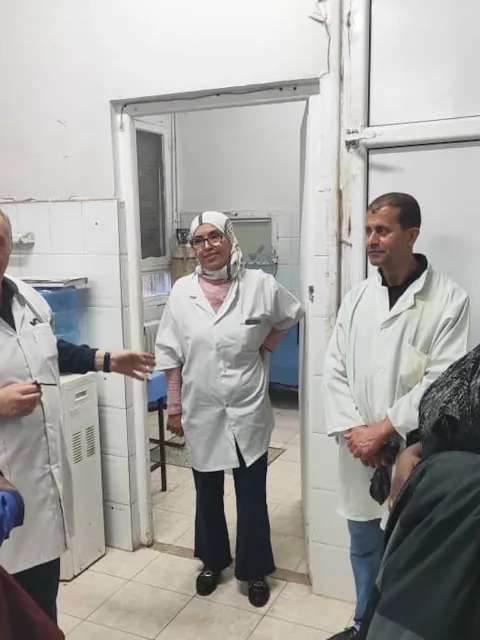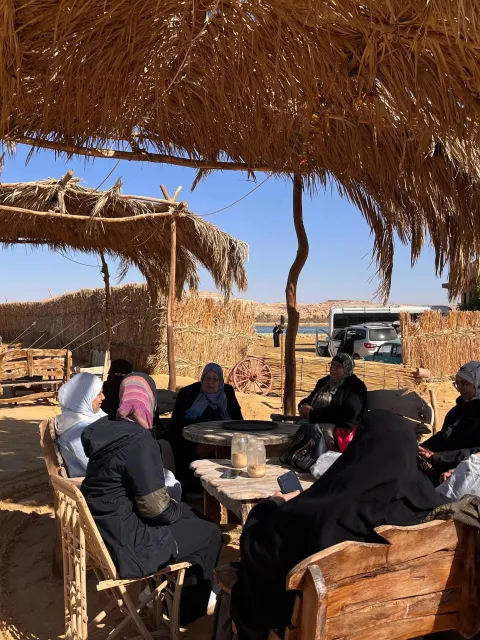Supportive cancer care in Vietnam and Rwanda addresses long-overlooked needs of people living with cancer
Two UICC fellows are helping integrate nutrition and psycho-oncology into essential cancer services, responding to gaps in emotional, nutritional and psychological support.
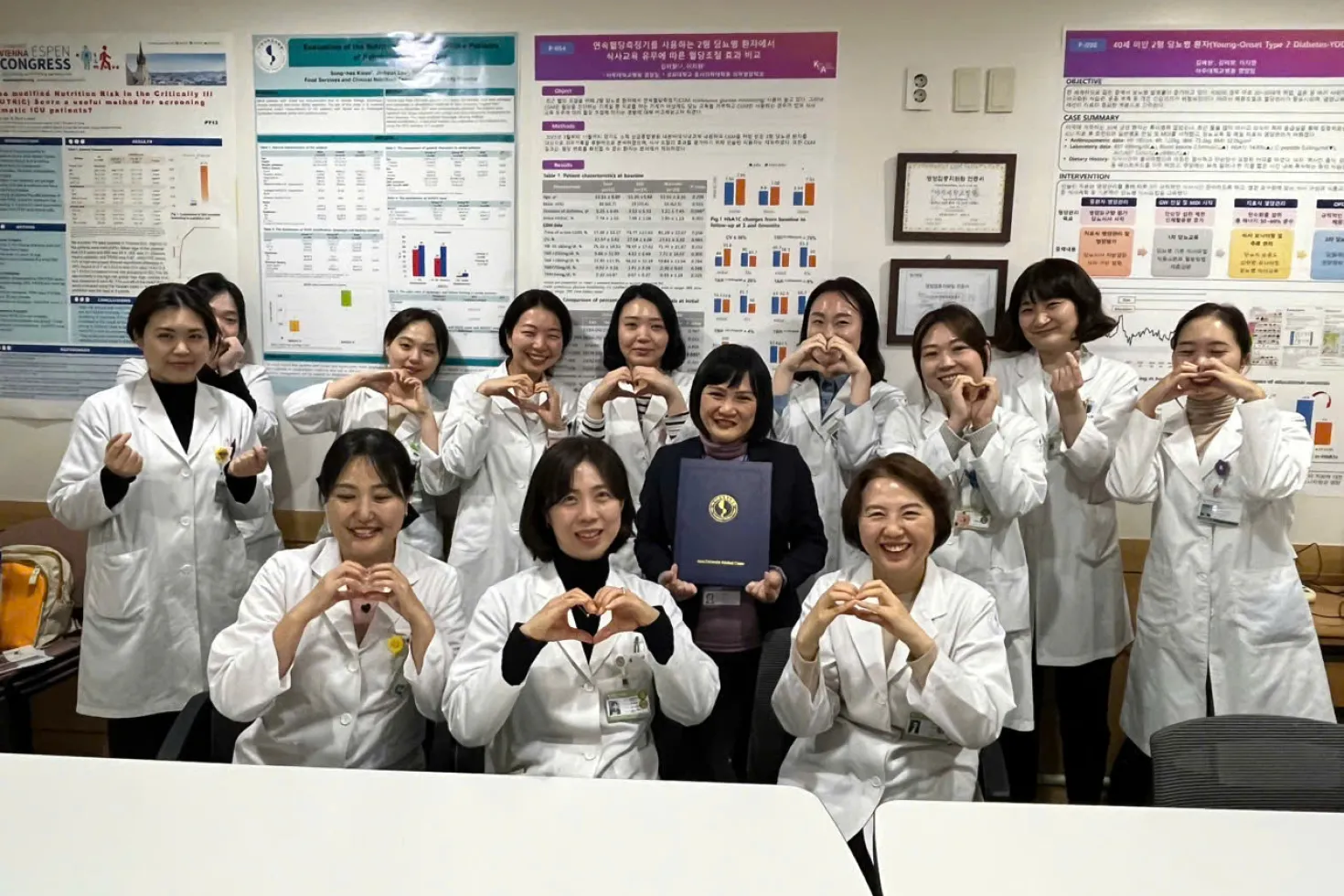
HIGHLIGHTS
- Dr Chau Quyen Tran is pioneering structured nutritional support for people living with cancer in Vietnam, building on her fellowship at Ajou University Hospital in Korea.
- Dr Diane Andrea Ndoli is building a multidisciplinary psycho-oncology model in Rwanda, following her fellowship at Princess Margaret Cancer Centre in Toronto.
- These efforts reflect a growing shift towards people-centred care in low-resource settings, where survival-focused approaches often leave gaps in support.
A cancer diagnosis – and the subsequent treatment and care – often brings fear, confusion, physical discomfort, and emotional strain, affecting not only the person with cancer but also their family. Without appropriate supportive services in place, these needs may remain unaddressed, impacting quality of life, adherence to treatment, and recovery.
For this reason, supportive services are increasingly considered essential care, though not always widely available. They are designed to address the psychological, nutritional, physical, social, financial, and spiritual needs of people with cancer from the moment of diagnosis through treatment and beyond – is a key component of comprehensive, people-centred cancer care.
Through UICC’s Technical Fellowships programme, Dr Chau Quyen Tran, Head of Nutrition and Dietetics Department, at the Hanoi Oncology Hospital in Vietnam, a UICC member organisation, and Dr Diane Andrea Ndoli, Clinical and Radiation Oncologist at the Rwanda Military Referral and Teaching Hospital, have taken steps to strengthen supportive care services in their institutions, by implementing programmes adapted to their local contexts.
The Fellowships provided opportunities not only for observational learning but also for direct engagement with experienced mentors and multidisciplinary teams. This knowledge-sharing approach supported practical reflection on how international best practices could be adapted within their own institutions to improve patient care.
Building structured nutritional support into oncology care
Dr Tran undertook her fellowship at Ajou University Hospital in Korea with the objective of improving nutritional care for people living with cancer. Her specific focus was to build structured dietary support for patients at risk of malnutrition, especially those with gastrointestinal or head and neck cancers – groups more likely to experience eating and digestion difficulties during treatment.
“My primary goal is to understand how nutritional interventions can improve cancer patients’ treatment outcomes and quality of life,” she expressed in the project report.
While general nutrition counselling is available in Vietnam, standardised nutrition care protocols are not yet widely implemented in oncology settings. During her two-week fellowship, Dr Tran observed how nutritional assessment and care were integrated into multidisciplinary cancer services.
“The Korean team was professional and open to sharing. I could observe many practical sessions and discuss difficult cases – that helped me understand how to apply knowledge into my context. I realised how essential it is to integrate nutrition into cancer care systematically. It cannot be optional – it must be part of the treatment plan."
– Chau Quyen Tran, Head of Nutrition and Dietetics Department, Hanoi Oncology Hospital
On returning to Hanoi Oncology Hospital, she began developing a tailored intervention programme for inpatients, starting with regular screening and clinical monitoring of patients’ nutritional status during treatment.
Each patient then receives a personalised diet plan adapted to their clinical conditions, with energy requirements and dietary tolerance considered throughout their treatment. Nutritional counselling and education are delivered, not only to patients but also their caregivers, through individual sessions, aimed at improving understanding and practical management of nutritional needs during cancer care.
Dr Tran has also initiated work toward formalising these practices into structured protocols, with the intention of contributing to national guidelines and sharing the approach with colleagues in the wider nutrition and oncology community.
The initiative is led by the Nutrition and Dietetics Department in collaboration with oncologists and nursing staff to ensure coordination with overall treatment goals.
International Collaboration of Nutrition in relation to Cancer (ICONIC)
Established in 2018, ICONIC unites global leaders including founding member UICC to build capacity, advance research, policy and practice on nutrition and cancer. For more information please see here. ICONIC | Cancer and Nutrition – NIHR infrastructure collaboration
Integrating psychosocial support into routine cancer care
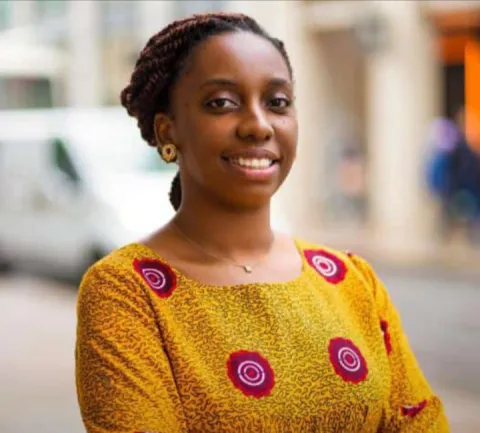
Dr Ndoli has been working to integrate psychosocial support into cancer care in Rwanda. As a clinical and radiation oncologist, she has seen firsthand how emotional distress, stigma, and social challenges affect the quality of life of people living with cancer and their families , their experience of the disease, and how they engage with treatment; ultimately they can undermine chances of successful treatment.
Her fellowship at Princess Margaret Cancer Centre in Toronto, also a UICC member, focused on how psychosocial services are delivered as part of multidisciplinary care, and how such models could be adapted to Rwanda’s context.
“I noticed that our patients were telling us something we weren’t addressing – not always directly, but through their distress, their behaviour, or how they disengaged from care,” she said in a conversation with UICC. “When I started listening more keenly, I realised how much they needed emotional and psychological support, and how fulfilling it was to provide it.”
Many people living with cancer experience anxiety, depression, or emotional withdrawal, yet may not recognise it as something that can be addressed, and services to support them are often limited.
“The patients themselves often don’t realise they need psychological help. They’re distressed and anxious, but they do not know how best to explain this need. Besides, we do not routinely screen for this distress as part of care. When we take the time to talk to them, and include the family, bring in a psychologist – they often say, ‘That helped me better navigate my treatment and my journey beyond treatment.’ But we need to educate patients and professionals alike to understand what psycho-oncology really is. I myself had limited knowledge on that.”
– Dr Diane Andrea Ndoli, Clinical and Radiation Oncologist, Rwanda Military Hospital
In Rwanda, access to psycho-oncology support remains limited. While staff such as psychologists, nutritionists and social workers are available in our hospitals, they are not always integrated into routine cancer care.
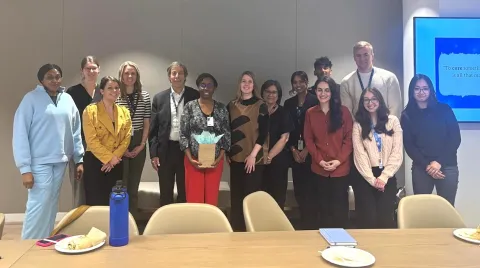
“Listening to my patients and their families, I realised that we had to do something about this,” Dr Ndoli said. “So I tried to look for the minimum that I had in place to intervene. I realised I had people – a psychologist, a social worker, a nutritionist: these make up a multidisciplinary aspect. We just weren’t working together as a team.”
During her time at the Princess Margaret Cancer Centre, also a UICC member organisation, Dr Ndoli observed how effective coordinated multidisciplinary care could be in improving psychosocial outcomes. “It was an eye-opener,” she noted. “I realised that supportive care can’t be left to happen sporadically – if care is to be truly person-centred, we need to build a team and work as one.”
She was particularly struck by how the department was developed and by learning from everyone in the department how it all started and how they got to where they were. The Centre incorporated psychosocial support into every stage of the care pathway. ‘”One of the key things that I carried with me was what Dr Gary Rodin told me: when starting and building a team, look for people with a heart,” she said.
Following her fellowship, she initiated a team-based approach to integrate psychosocial services into routine oncology care, aiming to make multidisciplinary supportive care standard practice within the hospital’s oncology services. “If we say care is person-centred, then we have to respond to everything that person is going through – emotionally, physically, and spiritually,” she explained.
Dr Ndoli also emphasised the importance of recognising the cultural context, including spirituality, in delivering psychosocial care. “In Rwanda, spirituality is deeply rooted in how people face suffering. It’s common for patients to say, ‘I’ll pray and I believe God will heal me and will give me comfort’: Instead of dismissing that belief, we need to respect it and work with it,” she said. “If it gives them strength and peace of mind, it becomes a support tool. We must include that in our care approach – by acknowledging it, respecting it, and where possible, involving chaplains or spiritual counsellors.”
Since completing the fellowship, she has begun formalising a supportive care team and has engaged colleagues in developing psychosocial pathways for patients. While staffing and awareness remain challenges, institutional support has allowed her to begin this work with a view to expanding nationally. “I’m starting with our hospital, but I hope with colleagues we can grow to other cancer centres and even into the community,” she said. “If we’re successful, others will learn from us.”
Last update
Wednesday 20 August 2025